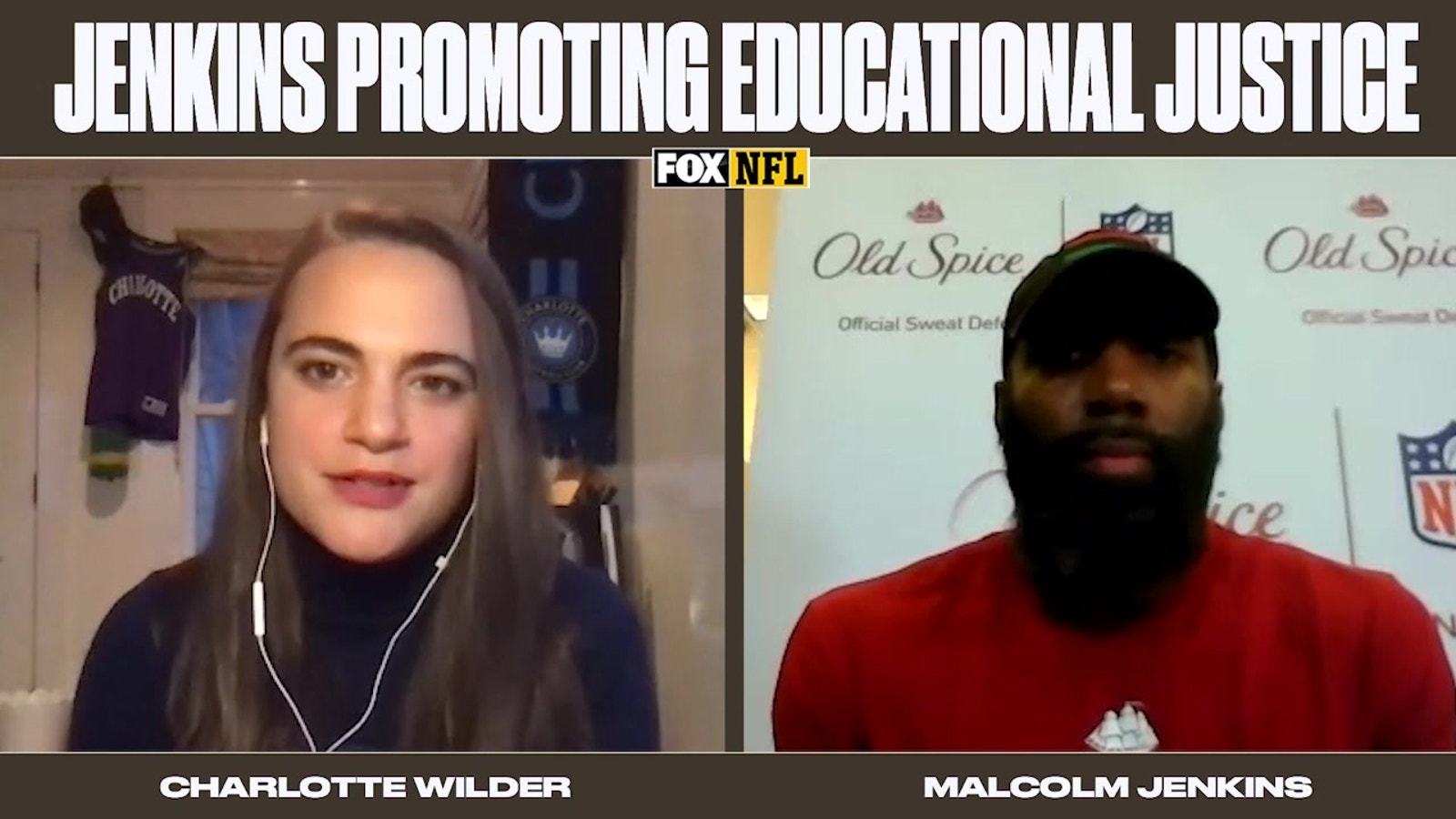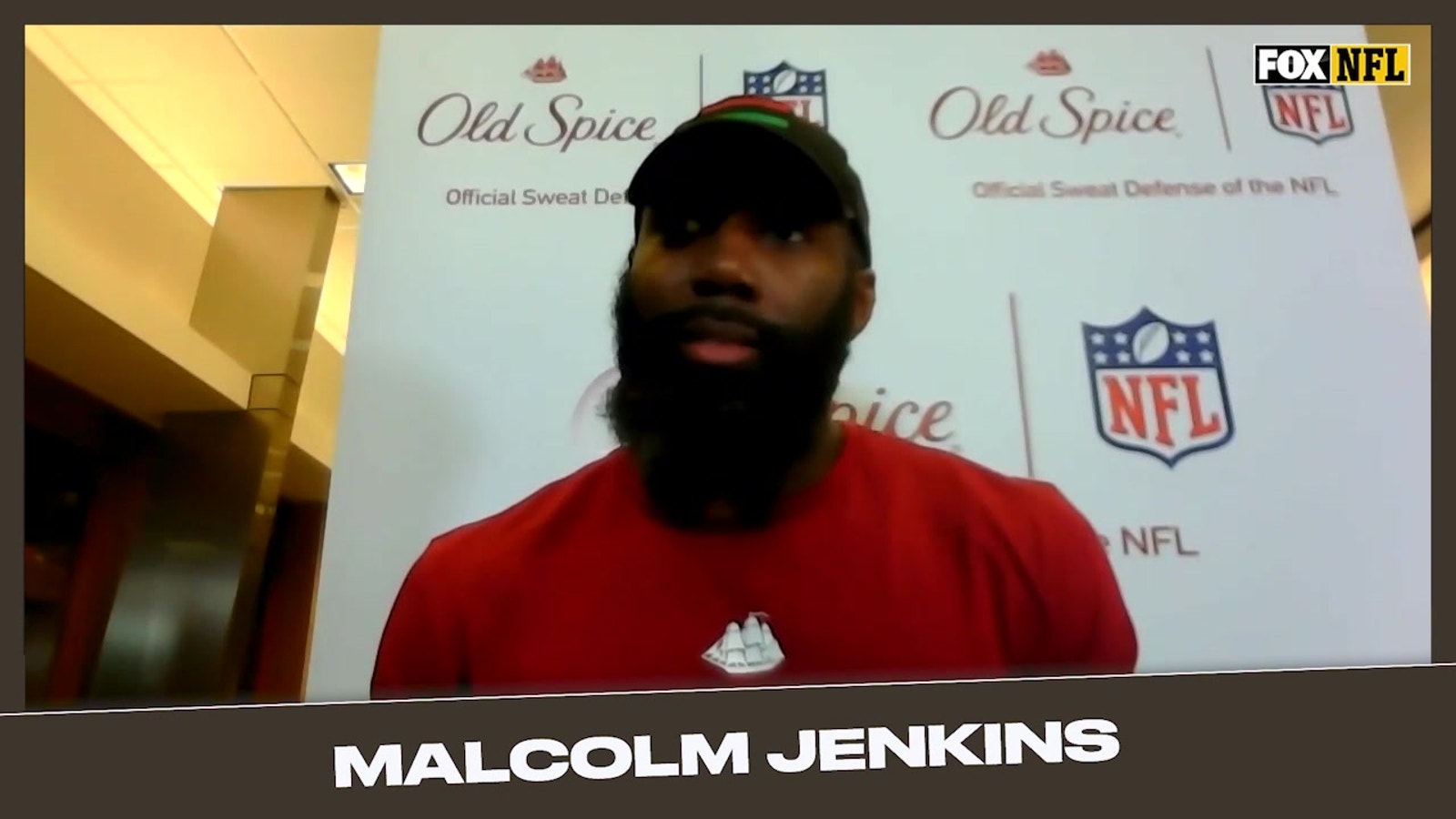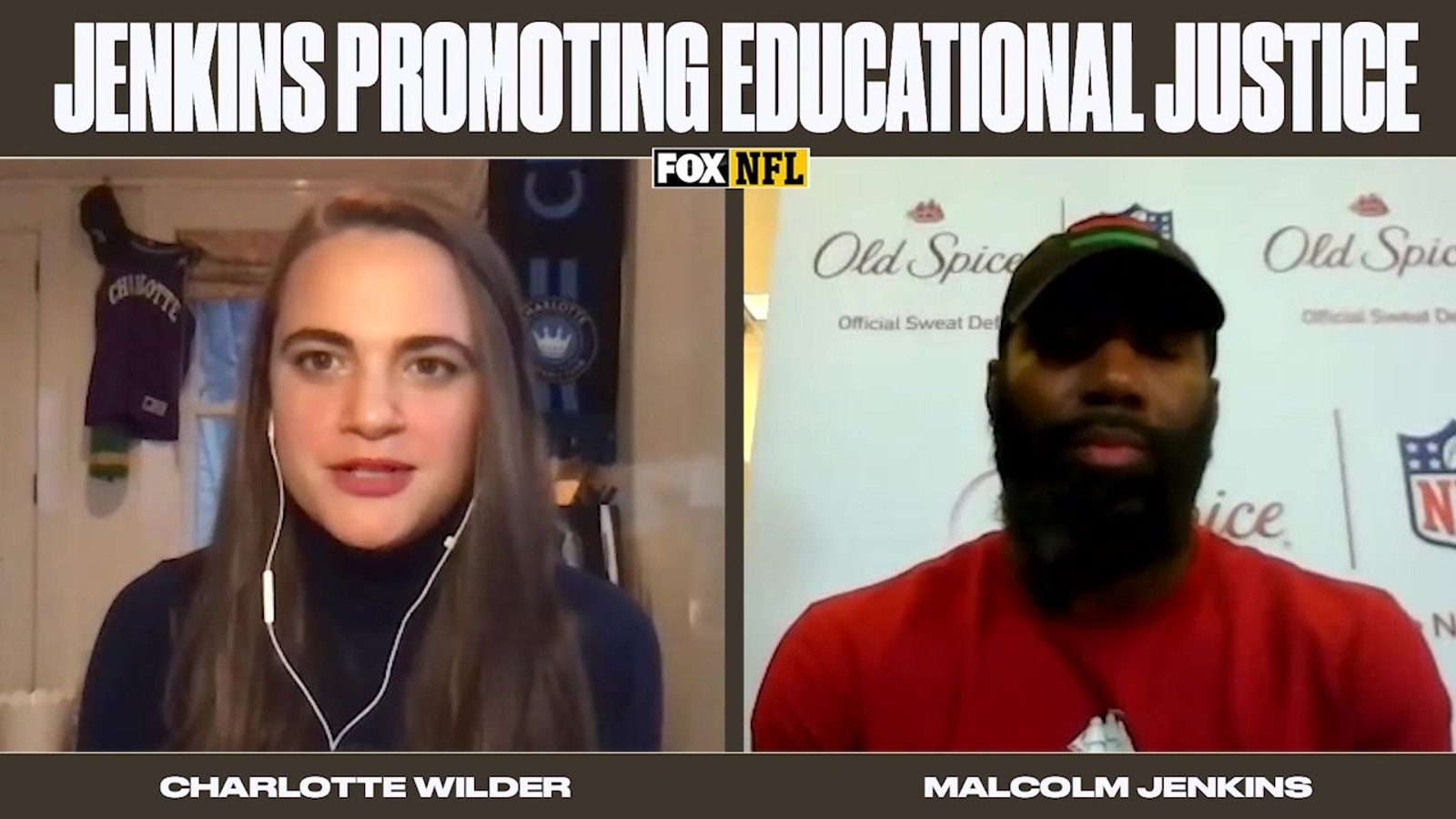
Saints' Jenkins Wants Action, Not Words
By Charlotte Wilder
Malcolm Jenkins appeared on my computer screen, Zoomed in from the Saints facility in New Orleans. But before we could begin our interview, he had to make it very clear who he was.
"I gotta change the name," the three-time Pro Bowl safety said, typing "M-a-l-c-o-l-m J-e-n-k-i-n-s" into the little nametag at the bottom of his digital frame, replacing the name of a Saints' public relations person.
It was just a formality, of course. Everyone who pays even the slightest bit of attention to the NFL knows exactly who the 12-year veteran is without a virtual name tag.
Malcolm Jenkins stresses the importance of voter participation especially at the state and local level
Jenkins grew up in Piscataway, N.J., where he led his high school team to three state championships and also ran track. He played football at Ohio State and has been in the NFL since the Saints took him in the first round of the 2009 draft. As a free agent in 2014, he signed with the Eagles. Jenkins has now won two Super Bowl rings as the part of underdog squads who upset legendary quarterbacks -- the 2009 Saints, who stunned Peyton Manning’s Colts, and the 2018 Eagles, who outscored Tom Brady’s Patriots.
He’s now back with the Saints, where it all began.
But Jenkins is much more than just a champion football player. Which is why we’re speaking this week. He has just returned from screening his new documentary Black Boys for a group of high school students, and he has partnered with Old Spice and the NFL in efforts to raise the high school graduation rate of boys across the country.
"My message to [the students] is to explore who you are in its totality," Jenkins says, of what he tells the African-American youth he speaks to. "Explore who you are as an intellectual, explore your creativity, and boldly be OK with who you are as an individual. It is not your job to make anybody in this society comfortable with your existence. It is society’s job to be accepting."
Jenkins easily connects with the students he speaks to who are trying to figure out who they are, or who feel pigeonholed to conform to society’s ideas of what Black men should be.
Because he once felt that way, too.
"I don’t think until maybe five, six years ago did I really take the opportunity to explore who I was outside of the game," Jenkins says. "Nobody ever told me that I was a creative, that I could write, that I could produce films, that I could be a clothing designer, all things that I’ve done and that came through self exploration and the ability to just try some things."
He pauses.
"But society would tell me otherwise, that I was just an athlete that’ll probably go broke when he’s done playing ball."
Jenkins is now one of the most multi-faceted, vocal, and socially active players in the league. In 2016, when NFL players began to kneel during the national anthem as they tried to bring attention to police brutality, Jenkins raised his fist before games.
But the message got twisted. The conversation was no longer about issues of systemic racism but about "respecting the flag." The issue came up again this summer, when Saints quarterback Drew Brees said in an interview that he wouldn’t kneel because he wouldn’t want to disrespect the flag.
Jenkins posted a video saying telling Brees he was "part of the problem." The two had a conversation, Jenkins deleted his post, and Brees issued an apology. Jenkins, who subsequently said he and Brees had been friends for a long time, told The Daily Show host Trevor Noah their interaction was "a microcosm to what we need to do as a country."
Jenkins is adept at bringing about change on both the micro and macro level. He founded his media company to spread his messages around social justice and anti-racism, and started the Malcolm Jenkins Foundation to further causes such as raising graduation rates and creating youth initiatives for kids in need.
"I started Listen Up Media when I grew frustrated with how sports journalism was handling my voice," Jenkins says. "I was trying to get messages out and speak about systemic racism, and all these things going on in society. And all anybody wanted to talk about was what players were doing with the national anthem, what Donald Trump was saying. I wanted to take control of my own voice and my own narrative."
Malcolm Jenkins shares how he got involved with his media company and breaking the mold of just being an athlete
Jenkins has not only taken his narrative back, he has furthered it by working as an executive producer on documentaries such as Black Boys.
"These are powerful tools to drive points home, get people to see other sides, and get everybody’s dukes down," Jenkins said, laughing a little. "To be able to showcase Black people in different lights, rather than just subhuman and superhuman, but all of the humanity in between that people don’t often see. It’s a disservice to Black folks, but also to everyone who wants to understand us better."
Jenkins’ goal of reaching people across the country is admirable, but he already has made considerable change at his own place of work. Not only did he have a constructive conversation with Brees this year, he has influenced a lot of white players to not only be more vocal, but to take action and put weight behind their words.
In 2017, I wrote a profile of Chris Long, who was then one of Jenkins’ teammates in Philly. Long had drawn lots of media attention for putting his arm around Jenkins while Jenkins raised his fist. He was hailed as a hero for being a white dude publicly supporting a Black teammate.
Long felt he couldn’t let the gesture become hollow or hijack Jenkins’ moment, so he donated all of his game checks from that season to educational initiatives.
These days, Jenkins says he has seen more white players speaking out against racism than ever. But that isn’t enough anymore.
"It’s not just the tokenism and the message," Jenkins says. "You get in trouble now if you don’t say something. It’s really about the action item: We have the ability to do so much, especially with a year like this, with so much on the line in this election. [With quarterbacks] and NFL owners, it’s one thing to make statements and decorate the field with all kinds of messages. That stuff is great. But we all know the NFL and other leagues are businesses, and often times lobby for their business interests. So where the real impact can be is if they take that same lobbying power, and push it for some of the policy changes we're looking for. That’s where the meat is on the bone."
While it’s hard to imagine Jenkins saying he doesn’t talk politics, he says he used to shy away from these issues.
"But I think the politics are inevitable when we really talk about how we create systemic change and move these hurdles we want gone. It all has to do with policy. And to affect policy you've gotta vote."
Malcolm Jenkins talks with Charlotte Wilder about his documentary, social activism in the NFL
Jenkins current initiatives are a testament to how hard he has worked to find his voice and push away unfair stereotypes society ascribes to him. And it’s why his message to young kids who look like him is so powerful — he’s an example of someone who could block out the noise and find out who he is outside of the game he plays.
If you hear Jenkins’ message and care about being a part of the change he calls for, do what he says: vote. Make sure you’re registered, have a plan about how you’re going to cast your ballot, and find out where your polling stations are.
Words can begin to make a difference, but they’re meaningless without action.
Enter the NFL Challenge contest on the FOX Bet Super 6 app for free and you can win this week's $1,000,000 jackpot! Download now at foxsuper6.com.













